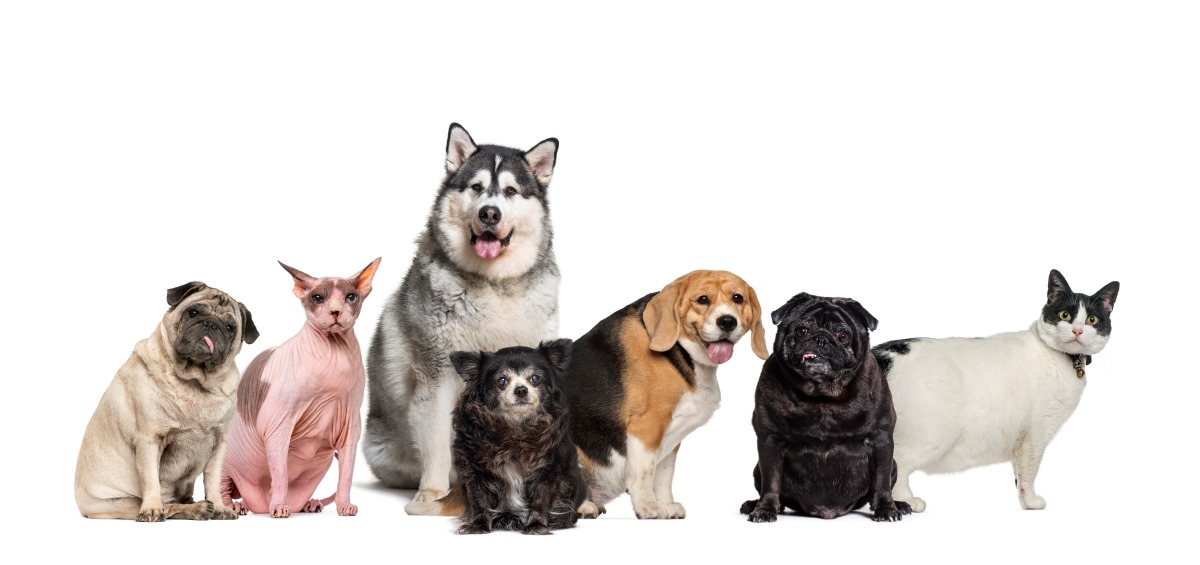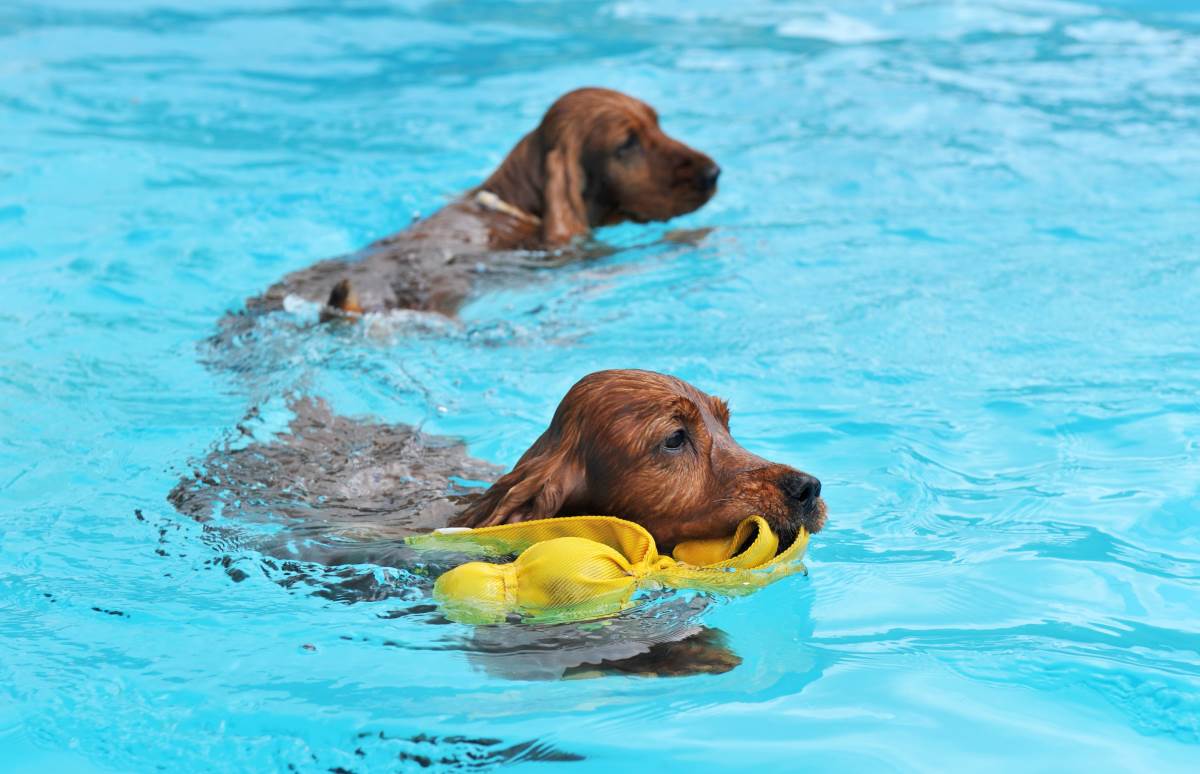Get Pet Insurance for your Cat & Dog

Zero
Documentation
Quick
Claim Process
Affordable
Premium
Terms and conditions apply*
- {{species}}
- {{indoorOutdoor}}
- {{suminsured}}
Obesity in Dogs: Risks & Tips to Overcome

Obesity in dogs can lead to many health issues, including joint problems, heart ailments, and reduced quality of life. It has become an increasingly prevalent and concerning health issue in recent years.
As responsible pet owners, you must take proactive measures to assist your obese dogs in shedding those extra pounds and regaining their health and vitality.
In this article, we will delve into every aspect of how to help an obese dog lose weight and why it is crucial to lose weight.
6 Steps to Help an Obese Dog Lose Weight
Assisting your dog in losing weight is a gradual process that demands dedication and patience. Here are the steps to help an obese dog lose weight:
- Consult Your Veterinarian: Before making any significant changes to your dog's diet or exercise regimen, it is crucial to consult your veterinarian. They can provide invaluable insights into your dog's needs and recommend a tailored weight loss plan.
- Adjust the Diet: Modify your dog's diet by selecting high-quality, low-calorie dog food. Avoid feeding table scraps or high-calorie treats, and focus on controlled portions that align with your veterinarian's recommendations.
- Monitor Food Intake: Keep a vigilant eye on your dog's daily food intake. Tracking their caloric consumption will help ensure that it aligns with the prescribed calorie intake for weight loss.
- Increase Physical Activity: Incorporate regular exercise into your dog's daily routine. Daily walks, interactive playtime, and agility training can help burn calories, improve muscle tone, and boost overall fitness.
- Hydration is Key: Ensure your dog always has access to fresh water. Adequate hydration is essential for overall health and can assist in weight loss for dogs by promoting a sense of fullness.
- Maintain Consistency: Consistency is paramount in weight loss for a dog's endeavours. Stick to the plan and avoid deviations from the prescribed diet and exercise regimen. Consistency will yield the best results in the long run.
What are the Benefits for an Obese Dog to Lose Weight?
Helping your obese dog to lose weight significantly improves their overall health and quality of life. Numerous benefits come with successful weight loss for dogs; some are listed below:
- Improved Mobility: Excess weight places excessive stress on joints, making it challenging for obese dogs to move comfortably. As the pounds come off, your dog will experience less strain on their joints, allowing them to move with greater ease and agility.
- Enhanced Energy Levels: Obese dogs often struggle with low energy levels and lethargy. As they shed excess weight, their energy levels increase, leading to a more active and vibrant lifestyle.
- Reduced Risk of Health Issues: Obesity in dogs is linked to a range of health issues, including diabetes, heart disease, arthritis, and respiratory problems. Weight loss significantly reduces the risk of developing these conditions, improving your dog's overall health and longevity.
- Better Digestive Health: Weight loss can benefit your dog's digestive system. Obesity can lead to gastrointestinal issues, including constipation and indigestion. Achieving a healthy weight can help normalise digestive functions.
- Increased Lifespan: Perhaps one of the most significant benefits of weight loss is an extended lifespan. Obesity is associated with a shortened life expectancy in dogs. Helping your dog reach and maintain a healthy weight can increase their chances of enjoying a longer, happier life.
What are the Risks Associated with Obesity in Dogs?
Obesity in dogs is not a benign condition; it's associated with many health implications that can significantly impact your pet's quality of life. Some key health issues related to canine obesity include:
- Diabetes: Obese dogs are at a higher risk of developing diabetes mellitus. This metabolic disorder can require lifelong management and may lead to complications if left untreated.
- Arthritis: Excess weight places additional stress on your dog's joints, increasing the likelihood of developing arthritis. Arthritic pain can be debilitating and reduce your dog's mobility.
- Respiratory Problems: Obesity can lead to respiratory issues, making it difficult for your dog to breathe comfortably. Respiratory issues can result in decreased exercise tolerance and a lower overall quality of life.
- Reduced Lifespan: Perhaps one of the most alarming consequences of obesity is a reduced lifespan. Overweight and obese dogs are at a higher risk of a shortened life expectancy than dogs at a healthy weight.
- Decreased Quality of Life: Beyond specific health concerns, obesity can diminish your dog's overall quality of life. They may become less active, playful, and prone to lethargy.
What are the Exercises for an Obese Dog to Lose Weight

Exercise is a fundamental component of any weight loss plan for dogs.
Here are various exercises specifically tailored for obese dogs to help them lose weight safely and effectively:
1. Low-Impact Activities
Starting with low-impact activities is crucial for obese dogs, as it reduces the stress on their joints and minimises the risk of injury. Some effective low-impact exercises include:
- Swimming: Swimming is an excellent low-impact exercise for obese dogs. It provides a full-body workout while being easy on the joints. Ensure your dog has access to a safe and controlled swimming environment.
- Walking on Soft Surfaces: Walking on grass or sandy terrain is gentler on the joints than on hard pavement. It allows your dog to exercise without excessive strain.
2. Interactive Play
Engaging your obese dog in interactive play sessions is an enjoyable way to promote physical activity while providing mental stimulation. Consider these playtime activities:
- Fetch
- Hide and Seek
- Puzzle Toys
- Chase and Tag
- Find the Toy
- Simon Says
3. Gradual Increase in Activity
It's essential to monitor your dog's comfort level and adjust the intensity of activities accordingly. Some include:
- Extended Walks
- Incremental Playtime
- Additional Rounds of Play
- Stairs Exercise
- Obstacle Courses
What is the Diet for an Obese Dog to Lose Weight?
A weight loss diet for dogs is the foundation of helping your obese dog shed those extra pounds and achieve a healthier weight. Here are some dietary strategies to help your overweight dog embark on a successful weight-loss journey:
1. Portion Control
- The goal is to provide the right amount of food to meet their nutritional needs while reducing calorie intake.
- Start by determining your dog's ideal body weight at maturity.
- The general guideline for whole food, raw meat-based, or home-cooked diets is to feed 2 to 3% of your dog's ideal body weight.
- Adjust this percentage based on their activity level: lower for less active breeds and higher for active dogs.
2. Weight-Loss Dog Food
- Consider transitioning your dog to a specialised weight-loss dog food formula.
- These formulas are designed to help dogs lose weight while still providing essential nutrients.
- They typically have fewer calories than regular dog food and may include added fibre to promote a feeling of fullness.
3. Feed Nutrient-Rich Food
- Prioritise feeding your dog with food that is rich in nutrients, including high-quality proteins and vegetables. Minimise the consumption of simple carbohydrates and opt for healthy fats.
- Enhance your dog's existing food by adding nutritious extras like veggies, fruits, eggs, and sardines.
- Non-starchy vegetables like broccoli, green beans, celery, or asparagus are excellent choices.
- Low-sugar fruits such as blueberries, raspberries, blackberries, or cranberries can also be included.
4. Fiber-Rich Foods
- Include foods with healthy fibre in your dog's diet.
- Fibre can provide a sense of fullness without adding extra calories.
- Focus on providing your dog with healthy sources of soluble and insoluble fibre.
Therefore, helping your obese dog lose weight is a journey that requires unwavering dedication and care. Taking proactive steps to maintain a healthy weight in our furry friends, we not only enhance their quality of life but also extend their years of companionship and joy.
By consulting your veterinarian, you can make necessary dietary adjustments and incorporate regular exercise, to improve your dog's life.
















